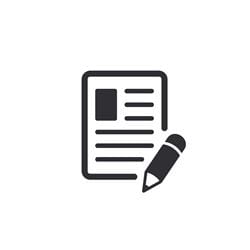All the other rights are meaningless if I am not recognized as a person first. Legal capacity is about personhood -- it's about me.
Jane Akinyi
Disability Rights Fund Global Advisor and Self Advocate
Video
People with intellectual disabilities have rights.
Video
Self-Advocacy and Self-Determination
Video
Never Say Never.
Our Handouts:
We also build our lives based on the world around us, the things we can see and the things we know about. When building a life, inclusion and equity are important words.
Different people and families may pick resources and services based on a balance of both equity and inclusion.
We hope to share ideas about resources for you to choose from, that will help you feel welcomed and successful in inclusive and specialized spaces.
Money
Money is need for life.
- You need to buy food to eat, a place to live and clothes to wear.
- You also use it to buy things you like.
Many people use a budget to help decide how to spend the money they have.
- Ask for help from someone you trust.
- Try the worksheets below to help with planning.
Many persons with disabilities receive Social Security payments.
It is important to know how to take care of your funds.
Many persons with disabilities have a person help manage their money.
This person is called a representative payee.
Learn about money with handouts from the National Disability Institute on Financial Wellness.
Take a look at:

Make a Budget worksheet
Here is a worksheet to help you plan your budget.

Managing My Money worksheet
Try this worksheet to help with planning called "Managing My Money"
Tap to flip the cards.
Special Needs Trusts
Special needs trusts hold money for a person with a disability to use for extra things you want.
- The ARC Master Trust is one type https://www.thearctrust.org/
- A private special needs trust is made by a private lawyer.
ABLE Accounts
ABLE accounts let you save for costs related to your disability.
- The ABLE account program in Indiana is INVESTABLE
Plan to Achieve Self Support account (PASS)
Plan to Achieve Self Support account (PASS) is a separate bank account for your work goals.
- PASS accounts are for persons who receive Social Security and want to work.
- Fact sheet: Using your PASS https://choosework.ssa.gov/library/fact-sheet-using-your-pass
Individual Development Accounts (IDA)
Individual Development Accounts (IDA) in Indiana train and match savings for low-income people to build their lives.
- The state puts money in your account to match the money you save.
- Learn more: https://www.in.gov/ihcda/program-partners/individual-development-accounts-ida/
Here are some normal changes:
- Hair turns gray
- Skin wrinkles
- Worse vision
- Worse hearing
- Joints get stiff
- Bones break easier
- It gets hard to poop
- Pee accidents or trouble peeing
- Lower energy
- Trouble remembering
- Periods stop
Video
People with disabilities age, too.
How to define aging with a disability? NCHAPD
Tap to flip the cards.
What does this mean?
- It means to stay strong, you must keep using your body.
How can you stay strong?
- Exercise keeps your bones and heart healthy.
- Do puzzles, read and learn new things to help your brain.
- Stay connected to other people.
- Eat healthy.
How long do people live?
- The average U.S. woman lives to age 81 and man to age 77.
- Persons with mild IDD can live to about the same ages.
- Persons with more severe disabilities may not live as long.








.png?rev=e53a363485534d40ab6909762bccdfff&la=en&h=400&w=1800&hash=37D22BC4A736B512CC99251E99CE7B76)
